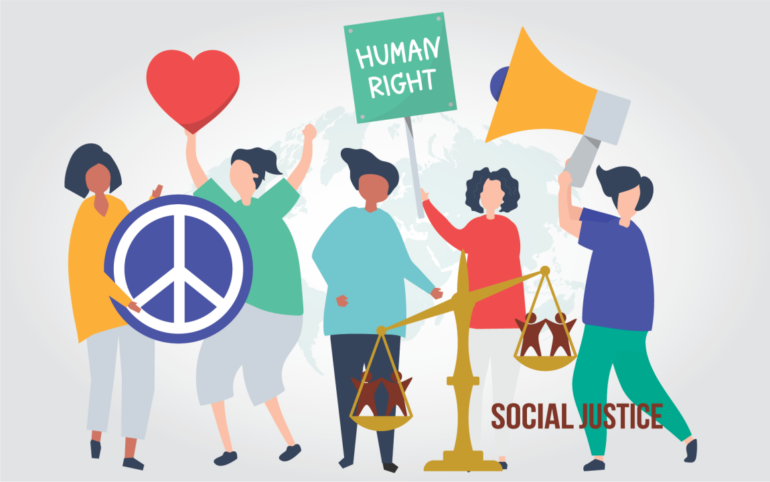The world, now more than ever it seems, is full of injustice, and I’d like to do something about that. I hope you feel the same. Social justice is an integral part of the Bible and Wesleyan theology, so we as part of the Asbury community should give our care and attention to “the least of these,” as Matthew 25:40 says.
So let’s create a just world! But wait, injustice exists in many places, so bringing peace and healing is complex and requires a lot of work. What can I do about that? I have seen myself and other young adults want to fix as many of the world’s problems as possible and overestimate how much we can do. We witness so much more tragedy than we can help. Hard as it is, we must accept our limitations.
We should all choose one social injustice to advocate for. There are so many benefits to choosing one social justice cause and dedicating yourself to it. On an individual level, focusing on one social justice cause allows you to learn more about the issue and enables you to communicate the problem more clearly and imagine more solutions. Choosing one issue makes it harder for you to burn out and become cynical, because there is a finite amount of injustice you are looking at and dealing with. Free yourself from the need to address all of the suffering. Trying to dedicate yourself to whatever issue is making headlines today will overwhelm you. If you dash from issue to issue, you won’t be able to make any meaningful progress in the direction of justice.
The idea to “do one thing and do it well” has existed in human consciousness for centuries, but was distilled by computer programmer Ken Thompson in Unix philosophy. In the “Bell System Technical Journal” by Doug McIlroy (1978), the first two tenets of Unix philosophy are “Write programs that do one thing and do it well. Write programs to work together.” We are not programs but should apply this directive to our social justice work.
The second tenet, “Write programs to work together,” is especially important to remember. Creating a more just world cannot be brought about by one person. Social justice work has the most impact when done in collaboration, both for specific issues and across issues. Two voices advocating are louder than one. Having support in planning a protest, creating educational books/zines or calling representatives makes each of those efforts more likely to succeed.
Collaboration makes communities more robust. I can feel safe to devote all my time and energy to one issue if I know my friends are devoting their time and energy to other issues. For example, if I choose to advocate for disability rights, my friend fights against anti-black racism and my other friend defends LGBTQIA+ rights, all three of us can dig deeper into the issues we’ve chosen because we know the tragedies we aren’t dealing with are being taken care of. We can relax when we see that the pressure of injustice is held by many hands.
Beyond the individual and relational benefit, social justice initiatives also flourish when the people who show up for them bring their entire being. A smaller group of dedicated people are much more helpful to an organization than a larger group of who show up half the time. But how do you even find those organizations I hear you ask? There are many online resources. On the website idealist you can search for jobs, organizations and events near you. On Gozaround, you can browse volunteer options by cause and date/time.
Exploring the issues present in our world can help you choose your issue. I have chosen to advance social and civil disability rights. I am disabled, specifically I’m a young, chronically ill person, so my experience of disability is less common. My experience diversifies disability both to my community and to able bodied (or as I like to call them, pre-disabled) people. Do you have lived experience you can teach to the world around you?
Other good ways to connect to other people working for social justice include asking around at local churches and social media. Churches, specifically United Methodist and Cooperative Baptist Fellowship ones, are often connected to and work with local nonprofits like Kentucky Refugee Ministries or Blue Grass Community Action Partnership.
Although action towards a better world can be confusing and challenging, I hope this urging to give yourself to a singular social justice issue helps direct you. Whichever cause you commit yourself to, I wish you courage and resilience.
Photo courtesy of LinkedIn.




